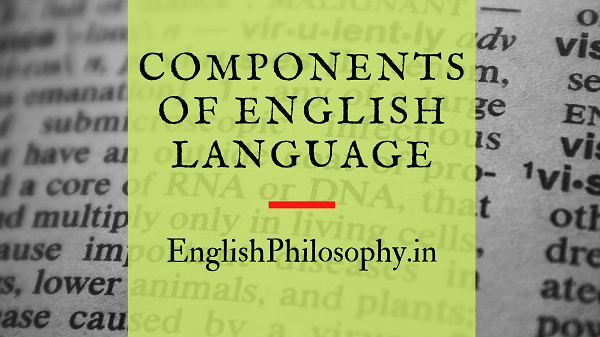What is Adjective? | Adjective meaning| Adjective examples| Types | Free Test
What is Adjective in English Grammar?
An adjective is a word in a sentence that shows the characteristics of a noun or pronoun. Adjective meaning may describe, identify or quantify nouns or pronouns. Further a sentence may have different types of adjective that need to understand.
Adjective quiz with MCQ
Adjective examples
Ram is an intelligent boy.
Delhi is a beautiful city.
I need little sugar in my tea.
Cheetah is the fastest animal on earth.
Audi is one of the costliest cars.

Types of Adjective
Based on different meaning adjective can be divided into further types. Below are list of adjective types with definition and examples.
Adjective of Quality
Adjective of Quality are the words that show the qualities of any noun or pronoun.
Example of Adjective of quality
Ram is an intelligent boy.
Delhi is a beautiful city.
Adjective of Quantity
Adjective of quantity are the words that show the quantity of any noun or pronoun.
Adjective Example of quantity
I need little sugar in my tea.
You have few minutes to complete your exam.
Adjective of Number
Adjective of Number are the words that show the number or position of any noun or pronoun.
Adjective Example of Number
The first bench is reserved for a disabled person.
She stood third in the class.
Possessive Adjectives
Possessive adjectives are the words that show the possession or relation to a noun or pronoun. My, our, your, his, her, their, are some of the possessive adjectives.
Possessive Example of Adjectives
This is my new book.
Mr. Sharma is our class teacher.
Demonstrative Adjective
Demonstrative adjectives are the words that indicate, demonstrate, and show relation to nouns or pronouns.
Demonstrative Example of Adjective
This book is mine.
That boy is the class monitor.
Interrogative Adjectives
Interrogative adjectives are the words that are used as questions for any noun or pronouns.
Interrogative Example of Adjective
Which book is yours?
Whose notes are these?
Participial Adjectives
Participial adjectives are the words that ends in -en/ -ed or -ing.
Participial Example of adjective
I like your smiling face.
you are a hardworking boy.
Formation of Adjective
Adjective are the words that modifies the sentences whether in positive or negative ways. Most of the adjective words are natural but some of the words are being created with suffixes and prefixes. Let’s read these adjective words with suffix and prefix.
Adjective words can be formed by adding suffixes like able, y, ish, ous, some, ly to the main words.
| Daily | Day+ly |
| Whole | Whole+some |
| Reddish | Red+ish |
| Crafty | Craft+y |
| Bearable | Bear+able |
| Dangerous | Danger+ous |
Some adjective words can be formed by adding prefixes like dis-, im-, in-, un-
| Dishonest | Dis+honest |
| Inefficient | In+efficient |
| Inefficient | In+efficient |
| Irresponsible | Ir+responsible |
| uncertain | Un+certain |
| Impossible | Impossible |
Degree of Comparison in adjective
Degree of comparison is an important characteristics of adjective, words with these degree shows the power of adjective. there are three degree of any adjective.
| Positive Degree |
| Comparative Degree |
| Superlative Degree |
Let’s understand the definitions of all three degrees of adjective
Positive Degree
If any words is in its simple form that it is considered as Positive degree. Positive degree is just to express simple quality or characteristics of Noun or pronoun.
Example of positive degree
Ravi is a strong boy.
Comparative Degree
Comparative degree denotes some higher degree to the adjective which is being said for someone. Comparative degrees are generally used to compare nouns or pronouns.
Example of Comparative degree
Ravi is stronger boy than Akash.
Superlative Degree
Superlative degree is the highest measurement of adjective used for any Noun or Pronoun. Superlative degree are used when more than two nouns or pronouns are being compared.
Example of Superlative degree
Ravi is strongest boy in the class.
Formation of Comparative and Superlative Degree
Comparative and superlative degree are formed only for two types of adjective, Adjective of quality and Adjective of quantity. Let’s have a look on below rules or formation of degree.
Most common formation of degree to comparative and superlative are by adding ‘er’ and ‘est’ in adjective words.
| Positive Degree | Comparative Degree | Superlative Degree |
| Bold | Bolder | Boldest |
| Fast | Faster | Fastest |
| Big | Bigger | Biggest |
| Small | Smaller | Smallest |
| Cleaver | Cleaverer | Cleaverest |
| Kind | Kinder | Kindest |
| Old | Older | Oldest |
| Strong | Stronger | Strongest |
| Weak | Weaker | Weakest |
| Young | Younger | Youngest |
Some adjective are converted in upper degree by adding -e, -r, -st to the main adjective words.
| Positive Degree | Comparative Degree | Superlative Degree |
| Fine | Finer | Finest |
| Able | Abler | Ablest |
| Noble | Nobler | Noblest |
| True | Truer | Truest |
| Wise | Wiser | Wisest |
| White | Whiter | Whitest |
Some positive degree use rules like, if adjective ends with y and having consonant before it then Y changed in i, and if word has Y and vowel before it then there is no change in word of comparative and superlative. Let’s read below example
| Positive Degree | Comparative Degree | Superlative Degree |
| Dry | Drier | Driest |
| Wealthy | Wealthier | Wealthiest |
| Gay | Gayer | Gayest |
| Grey | Greyer | Greyest |
Some of the adjective words use More and Most in Comparative and Superlative degree for adjective words.
| Positive Degree | Comparative Degree | Superlative Degree |
| Beautiful | More beautiful | Most beautiful |
| Careful | More careful | Most careful |
| Intelligent | More intelligent | Most intelligent |
Some Adjective are different in comparative and superlative degree.
| Positive Degree | Comparative degree | Superlative degree |
| Good | Better | Best |
| Bad | Worse | Worst |
| Many | More | Most |
The above MCQ quizzes of Adjective consists below questions.
| Ashok was a great king. The ‘Great’ is: |
| Adjective that tell us how many persons or things are there, are called: |
| Whose exercise-book is this? ‘Whose’ is: |
| That boy is my friend. My is: |
| My coat is tight. (Adjectives of Quality) |
| He has a golden chain. (Adjectives of Quality) |
| Monkeys have lonng tails. (Adjectives of Quality) |
| The cow eats green grass. (Adjectives of Quality) |
| She sings a sweet song. (Adjectives of Quality) |
| My father has much money. (Adjectives of Quantity) |
| Please give me some water. (Adjectives of Quantity) |
| She is feeling much pain. (Adjectives of Quantity) |
| Is there any tea in the pot? (Adjectives of Quantity) |
| He has no hope of his life. (Adjectives of Quantity) |
| The ____ dog. (Use appropriate Adjective) |
| The ____ bee. (Use appropriate Adjective) |
| The ____ tortoise. (Use appropriate Adjective) |
| The ____ lamb. (Use appropriate Adjective) |
| The ____ elephant. (Use appropriate Adjective) |
| The ____ bat. (Use appropriate Adjective) |
| The ____ fox. (Use appropriate Adjective) |
| The ____ mule. (Use appropriate Adjective) |
| The ____ peacock. (Use appropriate Adjective) |
| The ____ owl. (Use appropriate Adjective) |
| The ____ giraffe. (Use appropriate Adjective) |
| The ____ hare. (Use appropriate Adjective) |
Subscribe our Youtube channel : https://www.youtube.com/c/EnglishPhilosophy




